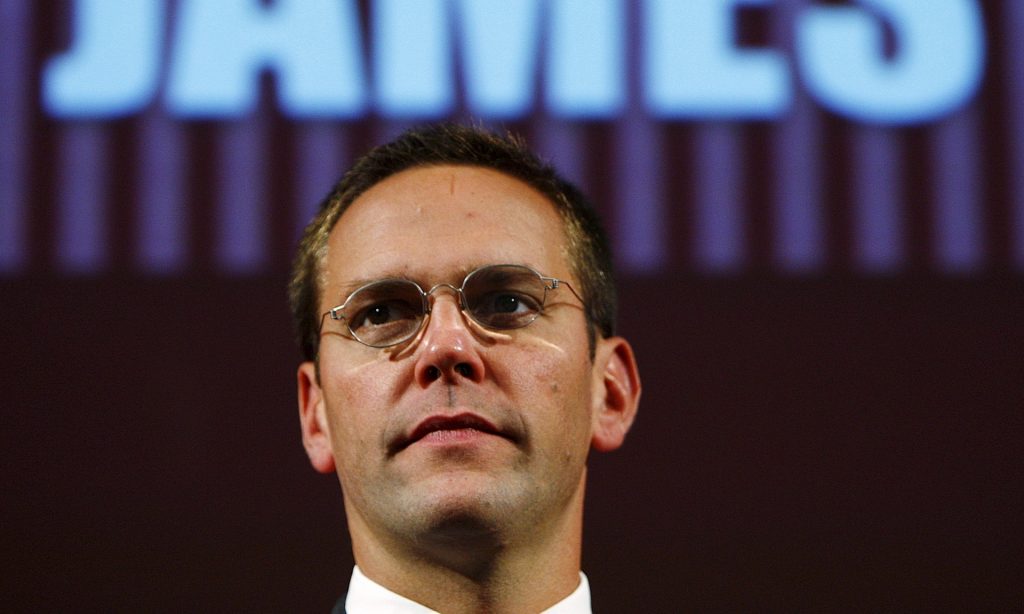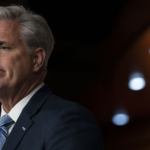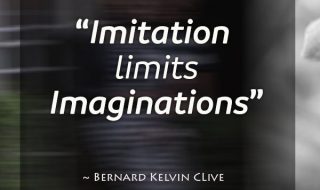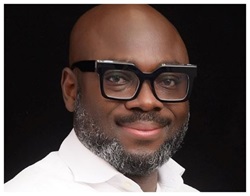
A Sky shareholder has criticised James Murdoch’s appointment as chairman, arguing that it flouts the corporate governance code and is a serious conflict of interest given he runs its biggest shareholder, Fox.
Royal London Asset Management, which owns £50m of Sky shares, believes Murdoch’s reappointment is “inappropriate”.
He was forced to stand down as chairman of Sky in 2012 in the wake of the phone-hacking scandal at News International, publisher of the Sun, Times and now defunct News of the World, where he had held the role of chairman.
Broadcasting regulator Ofcom heavily criticised Murdoch’s conduct in handling the scandal, saying it “repeatedly fell short” of what was expected of a chairman.
The Commons culture select committee, which was then chaired by current culture secretary John Whittingdale, also weighed in, concluding that Murdoch showed “wilful ignorance” of phone hacking.
It is just four years since Ofcom and the culture, media and sport committee – which was then chaired by the current secretary of state – all raised serious and well-founded concerns about James Murdoch’s lamentable handling of the phone-hacking scandal and his failure to take action over it,” said the shadow culture secretrary, Maria Eagle.
“Since then he has failed to rebut the many serious criticisms that have been raised over his conduct on phone hacking. So it is no wonder that some are already questioning the impact this will have on the independence of Sky’s board, with what is being seen as the firing of the starting gun for a fresh takeover attempt of the company.”
Murdoch, a non-executive director at Sky, was the only candidate put forward by its nominations committee, which is led by outgoing chairman Nick Ferguson.
The three-man committee also included Aberdeen Asset Management chief executive Martin Gilbert, who has been promoted to Sky deputy chairman, and independent director Dave Lewis, chief executive of Tesco.
Murdoch was then unanimously voted chairman by his 11 fellow board members, six of whom are independent directors.
Ashley Hamilton Claxton, corporate governance manager at RLAM, said the process raises questions over how Murdoch was appointed.
“His appointment is a major concern because the chairman should be independent. And particularly so in this case as Fox is such a significant shareholder that has shown an interest in taking over the company. It is surprising the board has chosen to elevate him to the level of chairman again.”
She points to the major issue that his appointment breaks best practice of the UK corporate governance code, which states that a chairman should be independent.
Murdoch is the chief executive of 21st Century Fox, which controls Sky as the biggest single shareholder with a 39.6% stake.
Fox was forced to give up on an £8bn-plus bid to take full control of Sky in 2011 as the fallout from the phone-hacking scandal made it too politically difficult to complete.
“Should Fox make a bid for Sky, investors need a strong independent chairman to protect the interests of minority shareholders,” says Hamilton Claxton. “If there was a situation where a vote was tied we question what extent the chairman will act in the best interests of all shareholders, he is conflicted.”
However, the UK corporate governance code is not legally binding. Companies only have to “comply or explain”, so Sky was able to ignore the best practice on the independence of the chairman.
Sky also decided against informing or consulting shareholders about the appointment, although there is no legal corporate governance requirement to do so.
“In this day and age of stewardship and promoting better understanding between companies and shareholders it is very unhelpful [not communicating with investors],” said Sarah Wilson, the chief executive of shareholder advisory firm Manifest.
“The key issue here is that independent board oversight is going to be crucial because of what some people see as a toxic combination of past problems and the lack of a transparent process. Was there even a search process?”
Sky defended Murdoch’s promotion, pointing out that it has made two strong appointments for balance: Gilbert as his deputy and Andrew Sukawaty, who takes over his role as Sky’s senior independent director.
“We have a strong board including six independent directors, including the deputy chairman and senior independent director appointed today,” said a spokesman for Sky. “The board is used to operating with a large shareholder and has robust processes in place.”
However, one observer argues that a number of Sky’s directors, such as Gilbert and Lewis, may not be able to give their full focus to Sky because of dealing with major problems at their own businesses.
“Are they going to have the time to properly do their job at Sky, which is crucial with James not being an independent chairman?,” said the City source. “Both are not just chief executives of FTSE 100 companies, they are at organisations facing challenging conditions. I wouldn’t be surprised if other investors call for a board refreshment, fresh independent directors, given this major change.”
In the almost four years since Murdoch moved into a non-executive directorship there has never been a revolt by investors voting against his reappointment at each annual general meeting.
“In no normal company, with proper regard to standards of corporate governance, would the board appoint someone under whose management between 2007 and 2012 News International engaged in a cover-up of the extent of phone hacking, and by his failures to prevent it cost the company over £500m so far,” said Evan Harris, joint executive director of the campaigning group Hacked Off.
Outgoing chairman Ferguson was paid total remuneration of £473,934. Sky would not comment on what change Murdoch can expect to his £96,500 remuneration as a non-executive director.
“Yet again Rupert Murdoch shows callous disregard for British public opinion,” said Chris Bryant, the former shadow culture secretary. “James Murdoch’s only defence was incompetence over phone hacking and now he’s back.”
Source:The Guardian /Mark Sweney
















